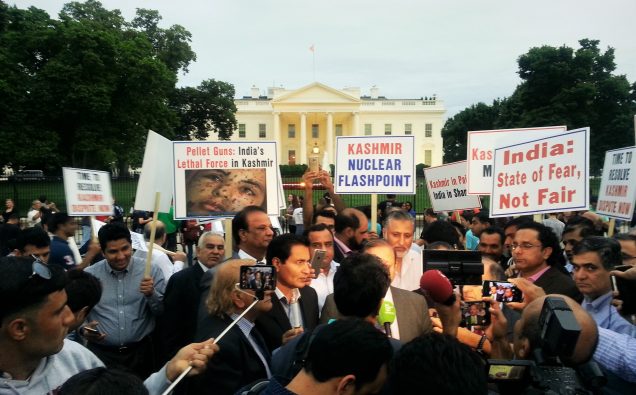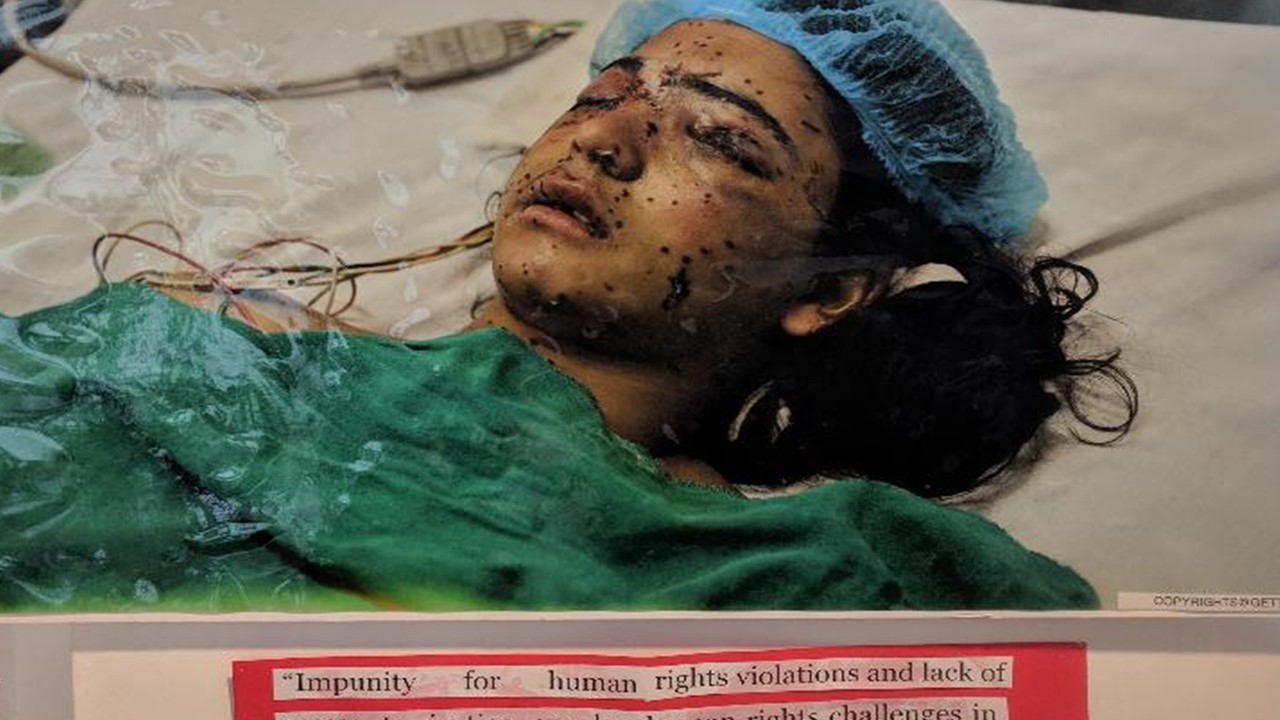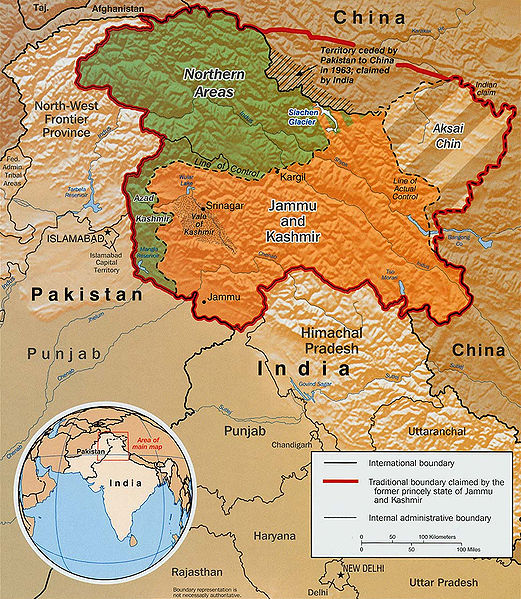
With the siege of Kashmir now into third week, President Donald Trump Tuesday vowed to do his best to mediate on the thorny dispute between South Asian foes India and Pakistan.
On the same day, Washington asked Indian Prime Minister Narendra Modi’s ultranationalist government to release detainees and restore basic liberties in the disputed region, partly controlled by Pakistan and India.
“We continue to be very concerned by reports of detentions, and continued restrictions on the residents of the region,” a senior State Department official said amid new reports that the residents in the valley face unprecedented restrictions and clampdown.
Modi imposed the clampdown on the eve of his August 5 suspension of special status for Kashmir. Pakistan has termed the strict curfew confining millions of Kashmiris to their homes as a “fascist” move by the BJP government.
The BJP government, which pursues Hindutva ideology of Hindu domination of the country, has received widespread condemnation for turning a blind eye to flagrant violation of rights of minorities including Christians and Muslims.
“We urge respect for individual rights, compliance with legal procedures and an inclusive dialogue,” said the official, who spoke on condition of anonymity after returning from a visit to the region.
Trump, who Monday spoke to both Pakistan Prime Minister Imran Khan and his Indian counterpart Modi, said he would again raise the issue with Modi when he sees him at the G-7 Summit beginning in France on August 24.
“Kashmir is a very complicated place. You have Hindus and you have the Muslims and I wouldn’t say they get along so great,” Trump told reporters.
“I will do the best I can to mediate,” the U.S. president said.

Picture taken by Views and News of a poster exhibition on Kashmir at Pakistan Embassy in Washington D.C.
This is the third time Trump has publicly pledged to mediate toward resolution of Kashmir dispute – a flashpoint between Pakistan and India. He pledged a mediatory role in his July 22 Oval Office meeting with PM Khan.
Meanwhile, the State Department has said while it sees change the change in Kashmir’s status as an internal matter, the issue has regional ramifications.
“We recognize that it’s an internal matter, but it obviously has implications outside of India’s borders. And so we have long called for direct conversations between India and Pakistan to resolve what have been the decades of tensions generated by that issue,” the official said, according to a report.
“And so I think when you look at our approach to Kashmir we focused in the near term on the human rights situation, encouraging India to move quickly to release detainees to restore basic freedoms, to implement what the Prime Minister laid out in his own address of a return to political normalcy for Jammu and Kashmir, whether first as a Union Territory but then as a State and the restoration of political dialogue. So we look to the India government to undertake those steps,” the official said.
The State Department officials also addressed Pakistan’s position.
“For Pakistan, Kashmir has always been an important issue… it’s been an emotional issue,” the official said.
According to a report, the official said there was no benefit for Pakistan to allow proxy groups to operate from its soil.
“It’s to the detriment of Pakistan’s reputation, to the detriment of Pakistan’s ability to attract the investment that it needs to grow its economy. It’s never been a successful strategy in achieving what Pakistan’s goals are for regional stability and peace and welfare of the Kashmir people,” the official said.
“It’s all the more important that Pakistan demonstrate its resolve to halt cross border terrorism. I think obviously we saw that the 1989 playbook was a failure for the people of Kashmir as well as for Pakistan,” the official said, according to an account.













